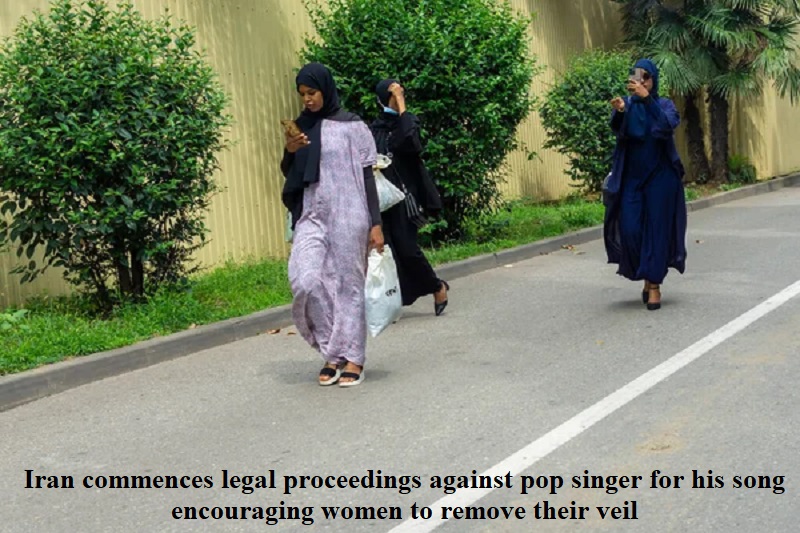
A significant development has unfolded in Iran as authorities have initiated legal proceedings against the well-known pop singer, Mehdi Yarrahi, due to his recent song that encourages women to remove their mandatory headscarves. This move comes nearly a year after the tragic passing of Iranian Kurd Mahsa Amini, a 22-year-old whose arrest for violating the stringent dress code sparked widespread protests throughout the country.
The legal action against Mehdi Yarrahi, who is 41 years old, stems from his release of a song titled “Roosarito” (meaning “Your Headscarf” in Farsi) on August 25. In this song, he expressed solidarity with the protest movement that arose following Mahsa Amini’s death. The Iranian judiciary, through a statement on its Mizan Online website, announced the initiation of a legal case against Yarrahi for distributing an “unlawful song” that challenges the moral and societal norms of Islamic culture. The specific charges against him have not been disclosed, and he is not presently in custody.
In his three-minute music video, Yarrahi incorporated the protest movement’s catchphrase, “Woman, life, freedom.” He urged women to “remove their (head)scarves,” with the video showcasing women dancing with uncovered hair.
Further legal actions against Yarrahi will encompass another song he released in October, titled “Soroode Zan” or “Woman’s Anthem,” which played a pivotal role in the protest movement, particularly within university settings.
Yarrahi has a history of advocating for causes. He has previously used his concerts to criticize authorities, particularly shedding light on the perceived marginalization of people in his hometown of Khuzestan province, which houses a significant Arab minority.
After Mahsa Amini’s demise, Iran witnessed extensive protests, often characterized by the government in Tehran as foreign-induced “riots.” These demonstrations led to the detention of thousands of Iranians and resulted in the loss of hundreds of lives, including numerous security personnel.
The stringent dress code, particularly the mandate for women to wear headscarves, has encountered mounting resistance from Iranian women, particularly in the wake of the mass protests that called for an end to obligatory head coverings. In response, Iranian authorities have recently resumed patrols to apprehend individuals seen in public without headscarves.
As the legal proceedings against Mehdi Yarrahi unfold, they bring into focus the intersection of art, activism, and societal norms within Iran’s evolving socio-political landscape.

Post Your Comments